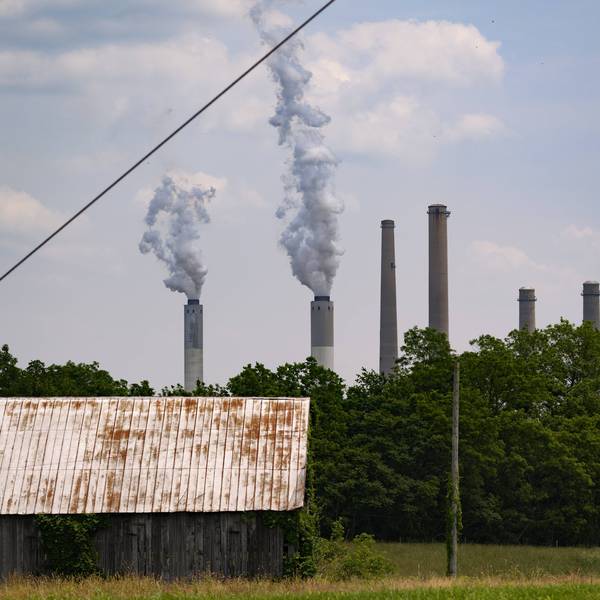Research published Thursday in the journal Science estimates that pollution from coal-fired power plants killed roughly 460,000 people in the United States between 1999 and 2020, making it more than twice as deadly as other kinds of fine particulate emissions.
After calculating annual exposure to fine particulates—known as PM2.5—from 480 coal plants and examining Medicare death records, the researchers found that between 420,000 to 500,000 excess deaths in the U.S. over the past two decades were attributable to coal pollution.
Those deaths, the researchers wrote, "would have been avoided" if all sulfur dioxide emissions from coal-fired electricity plants were eliminated.
Lucas Henneman, an assistant professor in the Sid and Reva Dewberry Department of Civil, Environmental, and Infrastructure Engineering at George Mason University, told The Guardian that "air pollution from coal is much more harmful than we thought, and we've been treating it like it's just another air pollutant."
"This type of evidence is important to policymakers like [the Environmental Protection Agency] as they identify cost-effective solutions for cleaning up the country's air, like requiring emissions controls or encouraging renewables," Henneman added.
The new study indicates that regulations have been effective at lowering coal pollution-related fatalities in the U.S., which were highest between 1999 and 2007 at more than 43,000 per year. After 2007, annual excess deaths attributable to coal pollution fell sharply, hitting around 1,600 in 2020.
"Large decreases in annual deaths across the study period highlight the success of emissions reductions brought about by regulations under the 1990 Clean Air Act Amendments," the study authors wrote. "Although coal use in the U.S. has remained low, global use is expected to increase and plateau by 2025, suggesting the potential for high mortality costs from coal for years to come."
In 2021, hundreds of nations agreed for the first time to phase down "unabated" coal power, but "coal power has barely declined since then," the Financial Times reported earlier this week.
Ahead of the COP28 climate summit that kicks off next week, 15 nations—including the United Kingdom, Canada, and Germany—are pushing for an end to new coal-fired power plants, according to a letter seen by the Financial Times.
"We must significantly accelerate action on coal," the letter states. "It is now critical that we immediately stop approvals and construction of new coal power plants and radically accelerate the coal-to-clean transition."




